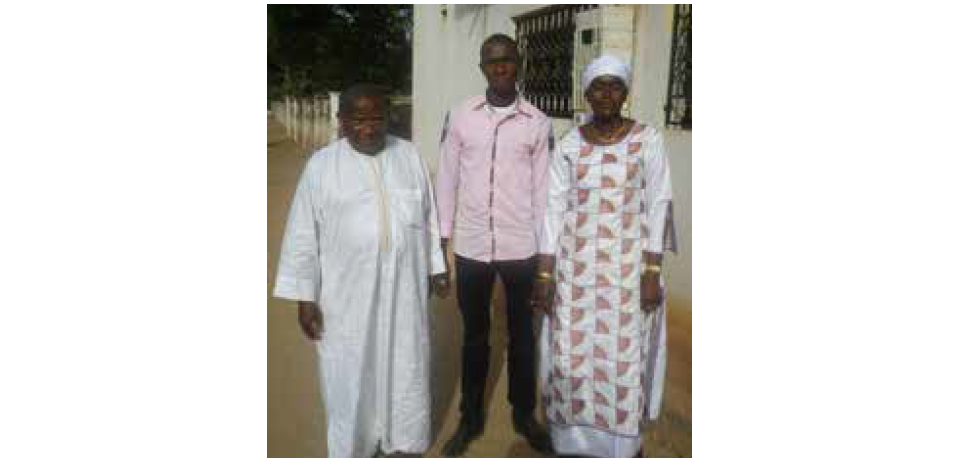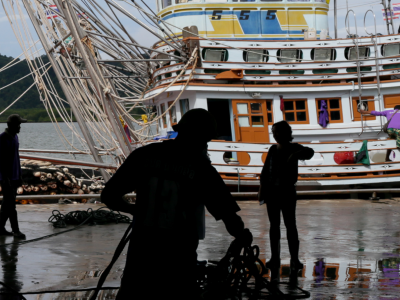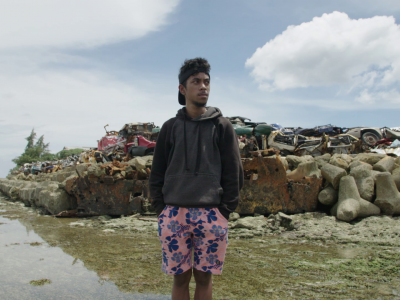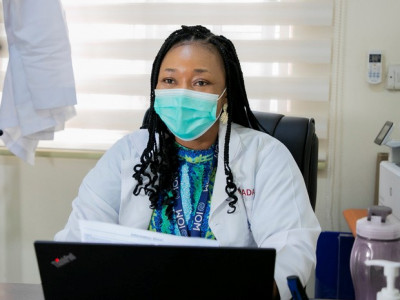Linking migrants, local authorities, investors and economic actors for local development
Related Sustainable Development Goals and Global Compact for Migration Objectives
Summary
This project comes from the JMDI Phase II, a UN Joint Migration and Development Initiative, run in cooperation by IOM, UNDP, ILO, UN Women, UNFPA, UNITAR which took place from 2012 to 2017 worked to develop economic tools for migrants to facilitate their investments with a view to enhance income-generating activities for the local population.
Since the 1980s, the Diourbel region, as well as the regions of Thies, Louga and Kaolack located in Western Senegal, have experienced a profound economic crisis because of a failing agricultural sector. This has led to high rates of internal migration from rural areas to urban areas, and high rates of emigration particularly towards Europe and especially Italy and to the establishment of an important diaspora in the Veneto region of Italy. However, given the global economic crisis, these migrants are becoming increasingly interested in implementing their own development projects in their region of origin, with a view to potentially returning to Senegal.
Overall, the project successfully created and strengthened a network of Help Desks, with 1 in each of the 4 targeted regions (Diourbel, Thies, Kaolack and Louga). As well as supporting returned migrants and diaspora to implement their development projects, the helpdesks contributed to enhancing the integration of all migrants, economically, socially and politically into the region, paving the way to maximise the benefits of migration on local development in these regions. The helpdesks also served to mobilize local authorities and support them mainstream migration into local development planning through the provision of technical support and raising awareness on the potential of migration for development.
Key objective
The main objective of this project was to develop economic tools for migrants to facilitate their investments with a view to enhance income-generating activities for the local population.
Main activities
The main activities of the projects consisted in:
- Setting up the Help Office for Migrants (HOM) – a service designed to better cater to the needs of migrants at local level and to mobilise migrants for development.
- Support for research on the role of migrants in the development of territories, and the profile of diaspora associations.
- Mobilising the diaspora abroad.
- Developing migration profiles in the six Senegalese municipalities from the Diourbel region.
- Encourage the productive investment of the diaspora in central regions of Senegal (Diourbel, Kaolack, Louga and Thiès).
- Groupe Teranga Rewmi (GTR) – a private body offering support for project development and insurance – provided forums for offering its services to the diaspora in Spain and Brazil.
The second round of activities involved trenghtening the service points (Helpdesks) through:
- Raising the awareness of local actors to the importance of taking migration into account through workshops.
- Gathering information on migrants in target communities through Focal Points.
Moreover projects activities included:
- Support for networking to maximise the benefits migration and promote migrant investments for local development
- Guide on migration and development advocacy for local authorities based on contributions by practitioners from the four regions.
- The creation of a Focal Point for each authority who, with the support of the RDA, was responsible for monitoring migration issues and assisting mayors in the area
Key successes or innovative factors, good practices and lessons learned (if available)
Key successes and lessons of the project highlighted that:
- Focusing on a small number of targets makes it possible to effectively operationalise the proposed services.
- Flexibility of services offered makes it possible to adapt to local needs.
- A local presence and the mobilisation of a decentralised network are imperative for the success of the Help Desk activities.
- Networking enables service points to be more effective.
- Projects should be adapted to the needs expressed by participants.
- Local planning exercises that are integrating migration should not be solely limited to emigrants.
- Local planning must begin with a baseline assessment on the magnitude of migration in the territory in question.
- Integrate migrants at every stage of the territorial development cycle.
- Focusing on a small number of targets makes it possible to effectively operationalise the proposed services.
- Flexibility of services offered makes it possible to adapt to local needs.
- A local presence and the mobilisation of a decentralised network are imperative for the success of the Help Desk activities.
- Networking enables service points to be more effective.
- Public-private partnerships can be used to create bridges between territories.
- These partnerships make it possible to combine the expertise of various actors for maximum leverage.
- These alliances make it possible to increase the capacities of local authorities, associations and private organisations.
- These partnerships are not easy and success is not guaranteed.
- For partnerships to be sustainable, there must be clarity about each partner’s objectives.
Beneficiaries
The beneficiaries identified in this project included the local communities of Diourbel, diaspora organizations and its members in neighbouring countries and in Europe.



